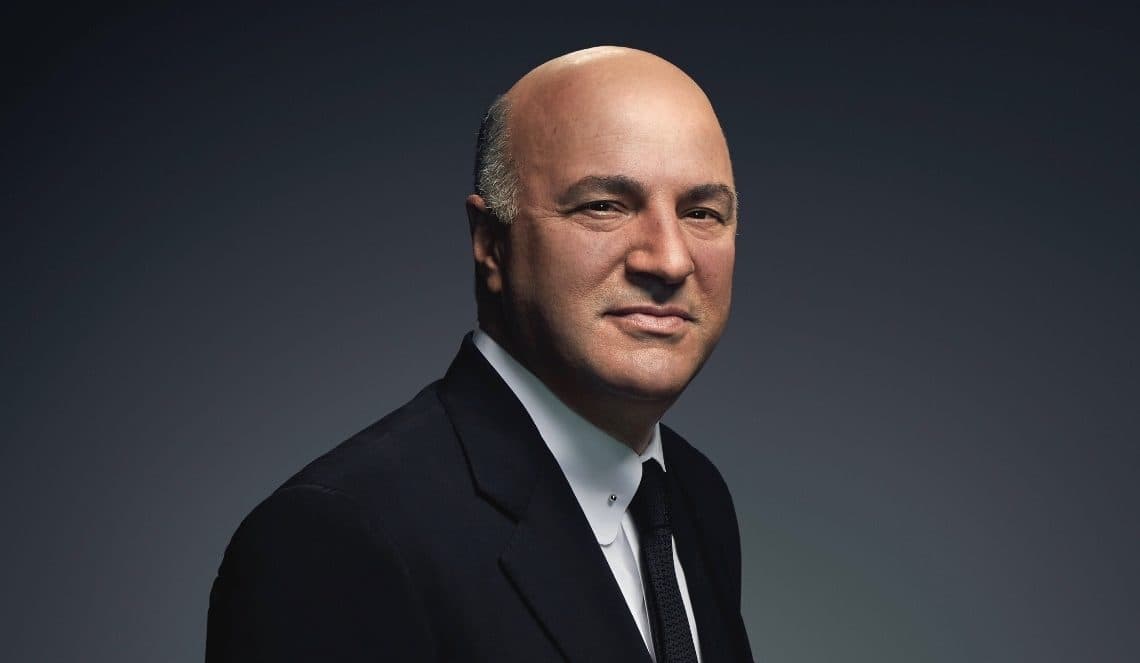Kevin O’Leary: Bitcoin ETF Won’t be Approved Until at Least 2023
Venture capitalist said getting regulators to set more rules ‘opens up the floodgates’ for crypto demand

Kevin O’Leary. Source: Provided
- Crypto industry doesn’t have regulators on board until the SEC greenlights a bitcoin ETF, O’Leary says
- Businessman looking into creating NFTs from collectible watches he owns, but says there is regulatory uncertainty in that market
Kevin O’Leary, an entrepreneur and venture capitalist known widely outside of the financial world for his appearances on ABC’s Shark Tank, said he doesn’t think the SEC will approve a bitcoin ETF in the US until at least 2023.
“I personally believe it won’t be next year even,” he explained. “I don’t see it happening – it’s a personal opinion, I have no more information than anybody else – but I’ve listened to the regulator trying to read the tea leaves. I think they’re going to go slowly into this.”
More than a dozen ETFs in the US that would invest directly in bitcoin and other crypto-assets await approval by the SEC. Gary Gensler, chairman of the agency, hinted last week that the SEC could look more favorably on applications for ETFs that are limited to investing in bitcoin futures contracts.
O’Leary’s comments came during Blockworks’ interview with O’Leary on Wednesday, during which he explained his new relationship with cryptocurrency derivatives exchange FTX. The company will be paying O’Leary in crypto to be its spokesperson after the venture capitalist made an equity investment in FTX.
The chairman of O’Shares ETFs, O’Leary said he bought his first positions in bitcoin, ether, Litecoin, and some other crypto assets in 2017 despite his criticisms of the space. Amid growing regulatory clarity over the last couple of years in a handful of European countries and Canada, he disclosed his 3% weighting to crypto.
O’Leary said he believes there is $1 trillion worth of buying power from institutions wanting to allocate 1% to 3% of their mandates in crypto if they become comfortable with ESG issues around bitcoin. He has been working with miners, noting his recent “big position” in Hut 8, a digital asset mining company based in Alberta, Canada, that he said is working to mine sustainably.
But despite sustainability and volatility concerns around bitcoin, the main reason many institutional investors hesitate to invest in crypto assets is the uncertainty that they will be fully compliant with regulators and reporting requirements, according to O’Leary.
“We are so early in this industry, and compliance departments generally don’t like cryptocurrencies, [so] it’s a long, hard climb up the hill to get them onside,” he said. “Every institution is dealing with this problem.”
O’Leary said the infrastructure bill was a missed opportunity, referring to the Senate’s failure to include a bipartisan amendment to exempt hardware wallet makers, cryptocurrency transaction validators, node operators and other non-brokers from tax regulations.
“I want the regulator to set the rules – I really do – because it opens up the floodgates,” O’Leary said. “We need to know what is regulated and what isn’t.”
NFTs for O’Leary’s Collectible Watches?
A major question O’Leary has is whether a non-fungible token will be treated by regulators as a security as he is looking into entering that space.
A collector of expensive watches, O’Leary said the watch asset class on average is up 100% year over year.
“Let’s say I have a one-of-a-kind Roger Smith or a one-of-a-kind F.P. Journe,” O’Leary told Blockworks. “…If you could get one of those watches, it could double in value in 12 months, and I have some of those watches. So why can’t I do an NFT of that dial and put it to auction? Will the regulator consider that a security or will that be a piece of art? We don’t know.”
FTX and Binance have launched NFT marketplaces in recent months. NFT sales are still down about 81% from their all-time high in 2017, but are at the highest number of sales in the past 12 month period. In just one week, NFT sales spiked 101.8% from 29,256 sales to 59,048, as of August 5. Additionally, sales are up 312% from the year-ago date, according to data from NonFungible.
Though an NFT is not a security simply because it can increase in value, industry participants think the technological developments driven by the NFT demand could lay the groundwork for expansion into many digital property rights, according to a March whitepaper by law professionals at Latham & Watkins LLP.
If deemed to be a security, every sale of the token would need to be registered or exempt from registration under US securities laws, the Latham and Watkins professionals wrote, and platforms dealing in the token would be required to register as a securities exchange or alternative trading system and broker-dealer.
“When I talk about the regulator getting involved here, I want them to get involved,” O’Leary said. “So when it comes down to bitcoin, the granddaddy of all digital assets, we don’t really have [regulators] on board yet until we have an ETF, and I think all of us in the industry are waiting for that.”
Want more investor-focused content on digital assets? Join us September 13th and 14th for the Digital Asset Summit (DAS) in NYC. Use code ARTICLE for $75 off your ticket. Buy it now.






